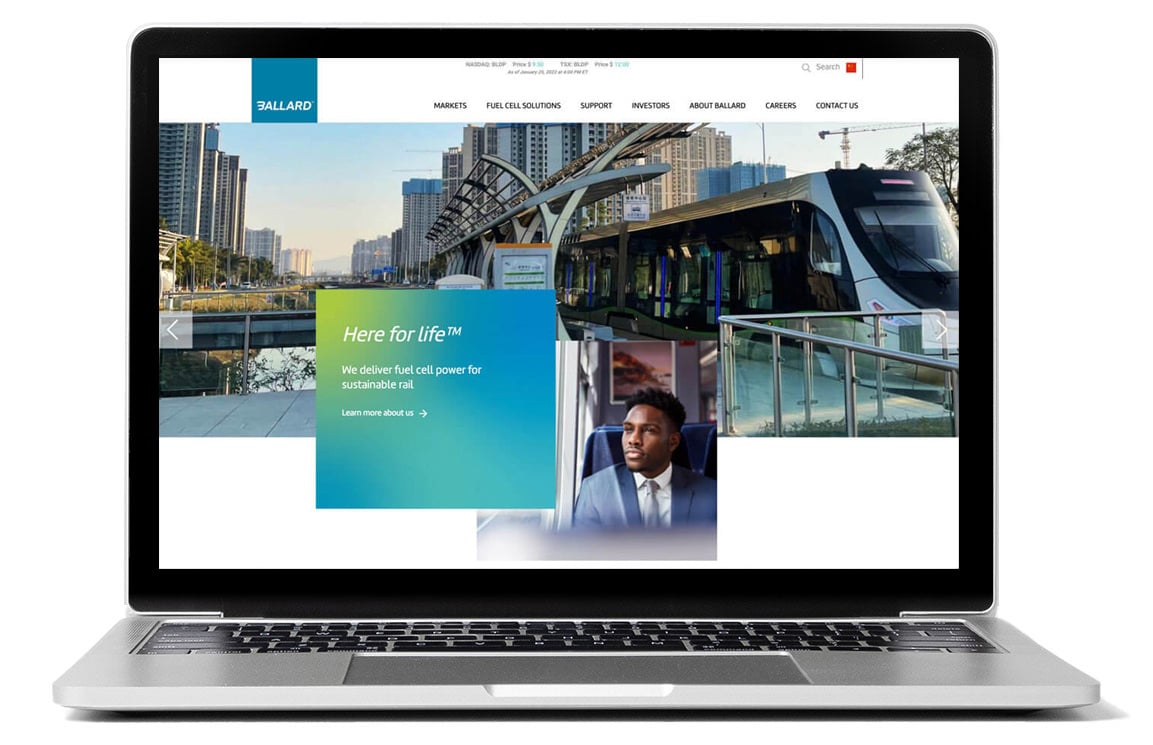A well-crafted website serves as the virtual storefront, showcasing properties, establishing credibility, and providing a seamless experience for potential clients.
If you find yourself contemplating, “How do I create a real estate website?” you’re embarking on a journey that blends creativity, functionality, and user experience.
This guide is designed to walk you through the essential steps and considerations in creating an effective real estate website.
Whether you’re a seasoned professional looking to enhance your online presence or a newcomer eager to establish a digital footprint, the following insights will equip you with the knowledge and tools to bring your real estate website to life.
Let’s dive into the world of web development and unveil the key elements that contribute to the success of a real estate website.
Why Should I Create a Real Estate Website for My Business?
For real estate professionals, a well-designed and functional website isn’t just a luxury—it’s a necessity.
If you’re pondering the question, “Why should I create a real estate website for my business?” the answer lies in the transformative impact it can have on your brand, client engagement, and overall success in the dynamic world of real estate.
1. 24/7 Accessibility.
Unlike traditional storefronts, a real estate website is open for business 24 hours a day, seven days a week. Potential clients can explore property listings, gather information, and contact you at their convenience, irrespective of time zones or business hours. This accessibility ensures that your business is constantly available to a global audience.
2. Showcasing Your Portfolio.
A real estate website serves as a virtual portfolio, allowing you to showcase your properties in an engaging and visually appealing manner.
High-quality images, virtual tours, and detailed property descriptions provide potential clients with a comprehensive view, creating a powerful first impression that can influence their decision-making process.
3. Establishing Credibility.
A professionally designed website lends credibility to your real estate business, conveying a sense of professionalism and trustworthiness.
It serves as a testament to your commitment to staying current with industry trends and meeting the expectations of today’s tech-savvy clients.
4. Enhancing Brand Visibility.
By incorporating search engine optimization (SEO) strategies, your website is more likely to appear in relevant searches, ensuring that potential clients find you when they’re actively seeking real estate services. This increased visibility translates into more opportunities for client acquisition.
5. Streamlining Communication.
Your website becomes a centralized hub for communication. It provides contact forms, inquiry options, and even live chat features, enabling seamless communication between you and potential clients. This direct and efficient communication channel fosters engagement and allows you to respond promptly to inquiries.
6. Targeting a Global Audience.
A real estate website transcends geographical boundaries, enabling you to reach a global audience. Whether you specialize in local properties or cater to an international market, your website serves as a platform to showcase your expertise and offerings to clients around the world.
7. Utilizing Analytics for Insights.
With built-in analytics tools, your website provides valuable insights into user behaviour.
By analyzing metrics such as page views, click-through rates, and user demographics, you gain a deeper understanding of your audience.
This data-driven approach allows you to refine your strategies and tailor your services to meet the evolving needs of your clients.
8. Adapting to Consumer Preferences.
Today’s consumers expect a seamless and user-friendly online experience. A real estate website allows you to adapt to these preferences, providing an intuitive platform where potential clients can easily navigate property listings, access relevant information, and explore your services at their own pace.
9. Showcasing Expertise Through Content.
Beyond property listings, your website provides a space to showcase your expertise and industry knowledge.
Incorporate a blog section where you can share market insights, tips for buyers and sellers, and other relevant content.
This not only positions you as an authority in the real estate domain but also keeps your audience engaged and informed.
10. Staying Competitive.
Having a well-designed real estate website is no longer an option; it’s a competitive necessity.
It sets you apart from competitors who may still rely solely on traditional marketing methods, demonstrating your commitment to meeting the evolving needs of today’s clientele.
Start Your Real Estate Marketing Journey Now
Copy and Post stands out as a Software as a Service (SaaS) company uniquely designed to streamline content creation and captioning for REALTORS® and Mortgage Professionals.
Our primary goal is to empower real estate professionals to save valuable time while fostering connections with past, present, and future clients across their social media platforms.
Distinguished from conventional marketing dashboards, Copy and Post provides users with a diverse selection of content collections to choose from.
This feature ensures a more varied and unified feed for individuals, coupled with personalized captions and hashtags, enabling users to focus on engaging their audience within their specific market area.
A key feature of our service is the availability of content a month in advance, presented in dark mode for user preference, and fully customizable using Canva.
Users can effortlessly save their favourite content and schedule posts directly on their connected profiles, all conveniently managed within our user-friendly dashboard.
While our forte lies in optimizing social media engagement, Copy and Post go beyond by offering additional resources.
From seller guides to welcome home packets, postcards, pop-bys, and more, we are committed to providing a comprehensive suite of tools that go beyond traditional content creation, empowering real estate professionals to excel in their marketing efforts.
SIGN UP – Copyandpost.com
Conclusion.
The question of whether to create a real estate website for your business is not just about joining the digital realm; it’s about future-proofing your success in a rapidly changing landscape.
A website serves as a dynamic tool that not only showcases your properties but also amplifies your brand, enhances client engagement, and positions you as a forward-thinking professional in the ever-evolving world of real estate.


